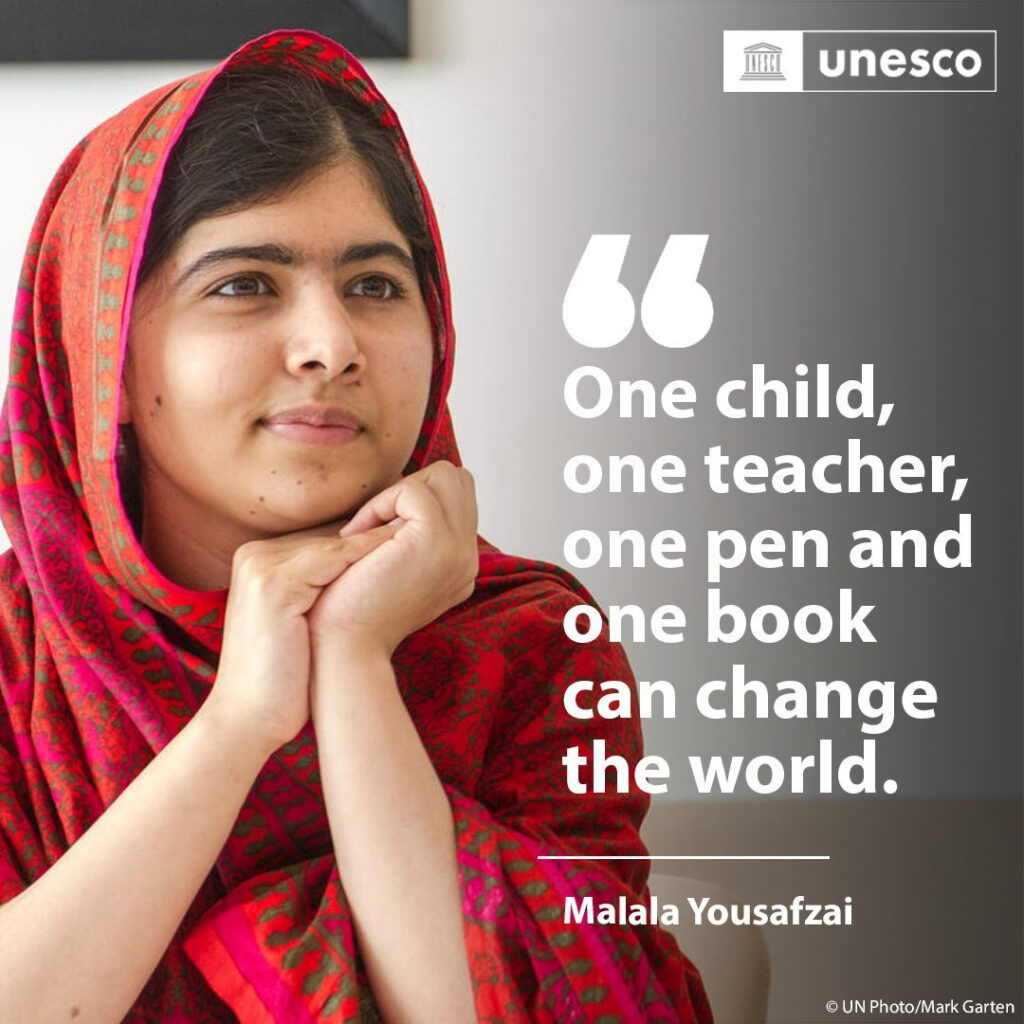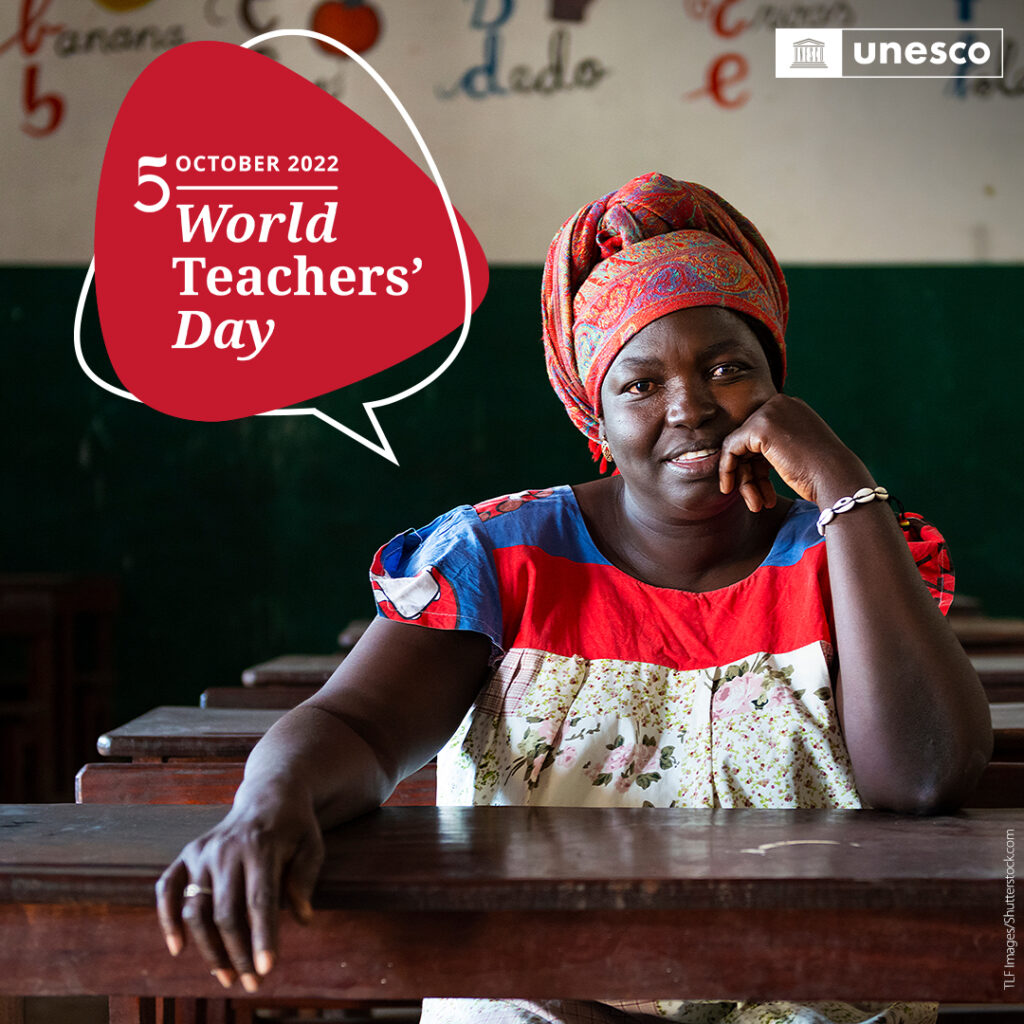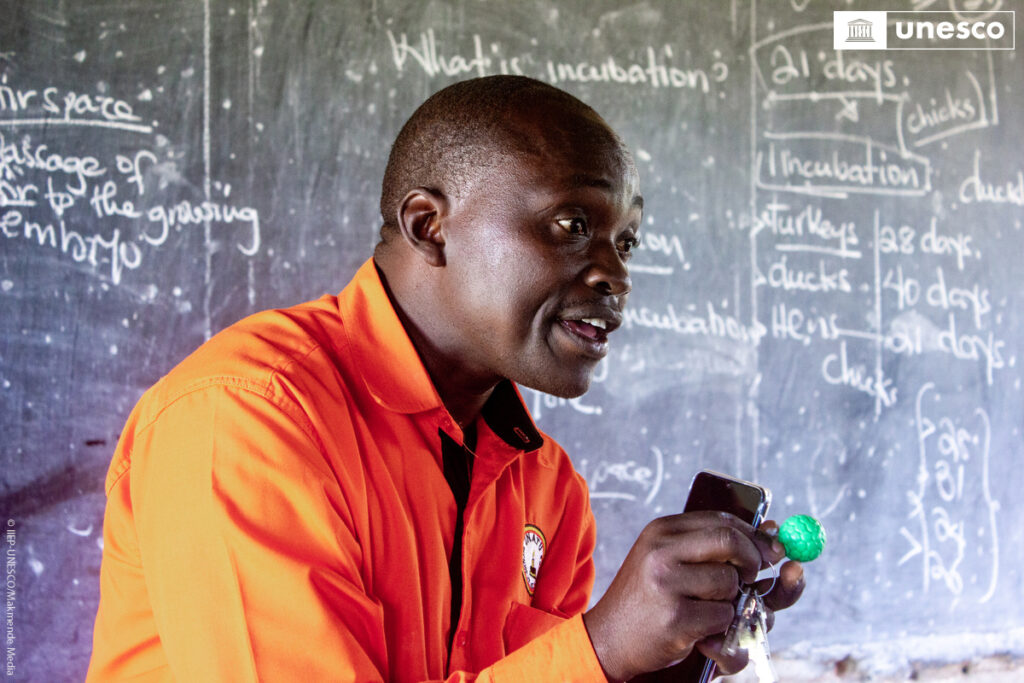Combat the learning crisis by supporting teachers on World Teachers' Day
Today is World Teachers’ Day, dedicated to celebrating the important work of teachers around the world! Since 1994, World Teachers’ Day has been celebrated in partnership with the International Labour Organization (ILO), the United Nations Children’s Fund (UNICEF), and Education International (EI). Today, October 5th, UNESCO is also celebrating World Teachers’ Day with this live event.
We’ve made progress in the past, but COVID-19 and other global crises have stalled and even reversed the global education community’s momentum. Today, almost 69 million more teachers are needed to achieve the UN’s education targets by 2030. Necessary investments in quality teaching include teacher preparation and professional development, recruitment and retention of good teachers, effective teacher management, fair pay, opportunities for career development, and better working conditions.
Teaching was also one of five action tracks at the recent United Nations Transforming Education Summit (TES). TES was a great opportunity for global leaders, lawmakers, and civil society advocates to discuss the severity of the global learning crisis and strategies to solve it. You can learn more about TES, including key issues impacting the teaching profession in Sub-Saharan Africa – such as the need for more female teachers, high pupil to teacher ratios, and low teacher pay – in this report.
To combat the learning crisis and reach the most vulnerable youth around the world, including girls, children with disabilities, and children living in poverty or situations of conflict, we need a strong teaching force. Education is a human right, and we cannot leave any students behind.

The Promise of Teaching
One teaching initiative that has generated a lot of important results is called “Teaching at the Right Level” (TaRL). This approach to teaching provides flexible support for learners so they can master foundational skills before advancing to more complex material. Initially based on a successful pilot program in India, this approach has since been scaled-up and applied in different contexts. Over a decade of research has shown that TaRL can help teachers build foundational skills in math and reading in diverse learning environments. In fact, a recent report called TaRL “the single most crucial intervention for reversing the decline in learning progress.”
To learn more about this teaching approach and some of the countries implementing it to improve learning outcomes, visit the FLN (Foundational Literacy and Numeracy) Hub – a resource hub with guidance on improving children’s foundational literacy and numeracy skills – and the TaRL Africa website.
In one example, the U.S. Agency for International Development (USAID) has partnered with the Zambian Ministry of Education to support teachers with the goal of improving learning outcomes for 1.4 million children in pre-primary through Grade 3, reaching over half of Zambia’s public primary and community schools. Through the Transforming Teacher Education activity, USAID partners with ten Colleges of Education and two universities to prepare primary school teachers for the classroom, including the TaRL teaching approach.

Take Action
We know that access to quality basic education is key to ending poverty. And supporting well-trained teachers is a big part of reaching this goal. Indeed, the Global Partnership for Education (GPE) has named quality teaching as a priority area in its latest strategy. Our advocacy around the reauthorization of the READ Act will enable the U.S. government to continue its crucial support for GPE to support teachers in addressing the global learning crisis. Reauthorizing the READ Act will make U.S. foreign aid more effective and maintain our government’s commitment to global education.
We know that our advocacy is working, because the House passed the bill in September. Now, we need you to urge your senators to join as cosponsors. You can check if your senators are supporters, and use #READActReauthorization, #WorldTeachersDay, and the sample tweets below to join the global education community in calling on Congress to pass this crucial bill. Gaining cosponsors will show Congressional leadership that this is a critically important bill that will affect millions of students around the world.
Join us on social media to celebrate World Teachers’ Day, with a particular focus on reaching gender equity in the teaching profession! Here are some sample posts to get you started.

- “Despite the difficulties, I feel very passionate about teaching at a refugee school.” Andrew, a primary school teacher in Nakivale Refugee Settlement, shares 5,000 pupils with his 53 peers. Read and watch his story on #WorldTeachersDay: https://on.unesco.org/3BZO3lN
- Careers have no gender. Yet, there are still not enough female teachers at higher levels of education. It’s time to remove systematic barriers that holds women back by #TransformingEducation! More on our efforts on #WorldTeachersDay: on.unesco.org/3BiDM3Z
- “One child, one teacher, one book, one pen can change the world.” Powerful words and the #WednesdayWisdom we need from @malala on #WorldTeachersDay.
You can tag: @iiep_unesco @eddevtrust @dubaicares
Facebook/Instagram
- “Despite the difficulties, I feel very passionate about teaching at a refugee school.” On #WorldTeachersDay, meet Andrew, a primary school teacher in Nakivale Refugee Settlement, who shares 5,000 pupils with his 53 peers. His inspiring story is part of the @iiep_unesco @eddevtrust @dubaicares film series “We Teach Here”, showcasing how teachers in refugee settings transform education: https://on.unesco.org/3BZO3lN
- Careers have no gender. Yet, there are still not enough female teachers at higher levels of education. It’s time to remove systematic barriers that holds women back by #TransformingEducation! More on our efforts on #WorldTeachersDay: on.unesco.org/3BiDM3Z